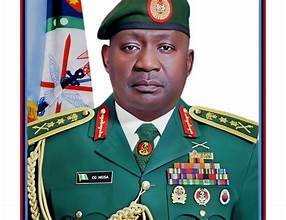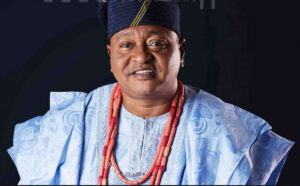Murder of Bolanle Raheem: Mandatory duty of hospitals to admit and treat victims of gunshots without any excuse
[ad_1]
Christmas celebration is usually a period of joy, happiness and love but 25th day of December may never be the same again for the family of Omobolanle Raheem, a legal practitioner and a graduate of the Olabisi Onabanjo University, Ago-Iwoye. She was said to have been four months pregnant with twins when she was brutally shot on her chest by ASP Drambi Vandi on Christmas day at Ajah bridge in Lagos State.
The President of the Nigerian Bar Association, Y.C. Maikyau, SAN, OON has assured the family and Nigerians that justice will be done in the case. The Lagos State Governor, Mr. Babajide Sanwo-Olu and the Inspector General of Police have given the same assurances.
Surprisingly, nothing has been heard from the Nigerian Medical Association on the allegation that the victim was rushed to two hospitals (alleged to be Budo Specialist Hospital and Doren Hospital) but was rejected by the first hospital. Any hospital that rejects a gunshot victim should face criminal prosecution for impunitiously violating the material provisions of the Compulsory Treatment and Care for Victims of Gunshots Act, 2017.
Section 1 of the Act states that “As from the commencement of this Act, every hospital in Nigeria whether public or private shall accept or receive, for immediate and adequate treatment, with or without police clearance, any person with a gunshot wound.” Section 2(2)(a) of the same Act provides that “A person with a gunshot wound shall be received for immediate and adequate treatment by any hospital in Nigeria with or without monetary deposit.” Therefore, it is mandatory for every hospital (the Act only mentioned hospital) to accept and treat every gunshot victim. There are minimum standards set by the Nigerian Medical Association before any hospital can be set up and one of the conditions is that such hospital must have minimum competent medical staff and facilities. Probably, if the hospitals had accepted Bolanle Raheem and offered her some form of first aide or made their ambulance available for her to be rushed to a better equipped hospital, she could have survived. The Compulsory Treatment and care for Victims of Gunshots Act, 2017 made no provision for any hospital to exercise any discretion to either accept or reject a gunshot victim. It is a mandatory duty that has both health and security implications for the society. It is the primary duty of doctors to save lives.
Section 11 of the Compulsory Treatment and care for Victims of Gunshots Act, 2017 states that “Any person or facility including any police officer, other security agent or hospital who stands by and fails to perform his duty under this Act which results in the unnecessary death of any person with gunshot wounds commits an offence and is liable on conviction to a fine of N500, 000.00 or imprisonment for a term of five years or both.” Section 14(1) of the same Act further provides that “In addition to any other penalty under this Act, the High Court shall order a person or corporate body convicted of an offence to make restitution to the victim by directing the person or corporate body to pay to the victim an amount equivalent to the loss sustained by the victim”
The Compulsory Treatment and Care for Victims of Gunshots Act, 2017 has de-emphasized the payment of money before treating a gunshot victim. As a matter of fact, under the Act any gunshot victim can be taken to Eko Hospital, St. Nicholas Hospital or any of the top hospitals in Nigeria without paying any deposit. It becomes a duty imposed by law on such hospital to treat the victim, keep a record of the treatment and notify the Police and victim’s relations within a reasonable time (the Act states 2 hours) of commencing treatment. See section 3(1), 10 and 12 of the Act.
The Nigerian Medical Association should enlighten its members of their duties under the Compulsory Treatment and Care for Victims of Gunshots Act, 2017. The law admits of no excuse on the part of the hospitals. Therefore, the usual excuse of lack of adequate facilities or personnel is not a ground to escape the penal provisions of the law. It is more like a strict liability offence.
ALSO READ FROM NIGERIAN TRIBUNE
[ad_2]














Post Comment